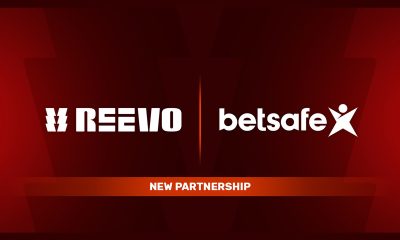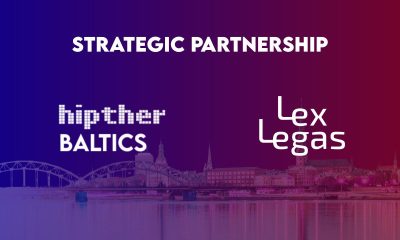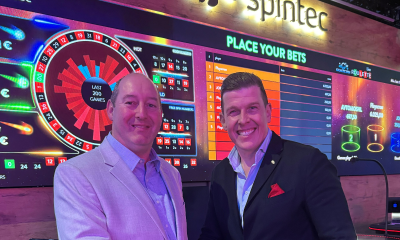Baltics
iDenfy Partners with Confindo to Enhance Security and Prevent Loan Fraud

iDenfy, an AI-powered identity verification, compliance and fraud prevention solutions provider, has partnered with Confindo, a leading provider of IT solutions specialising in customer relationship management (CRM) tools for group companies and external partners. This collaboration will help Confindo manage third-party risks and ensure proper fraud and breach prevention while building a seamless and secure verification experience.
The rise in digital transactions has made robust security measures more critical than ever. With security challenges like forged documents and synthetic identities, particularly in the financial and lending sectors, companies increasingly seek advanced solutions to protect their customers. Spending on information security and risk management products and services is expected to grow by 14.3% this year, reaching more than $215 billion. However, many companies operating in the financial sector see fraud as a top priority on the list, where even a single breach can have significant legal and reputational consequences.
Confindo, a dominant player in the consumer lending market since 2018, recognised the importance of securing its platforms against potential threats. Brands under the “Confindo” name, like Lenders, Bancovo, Comparar Prestamos mainly serve as intermediaries for consumer lending services. Consequently, the business is best known for representing over 20 banks and creditors in Lithuania and processing more than 10,000 inquiries monthly. As the business experienced a high volume of requests and new registrations, it required a new trusted Know Your Customer (KYC) vendor to help safeguard its operations, especially in this expansion stage across Europe.
According to Confindo, its recent operations in Latvia and upcoming launches in two new markets also showed a need for extra automation measures in its customer onboarding process. Before partnering with iDenfy, the IT and financial service provider aimed to build a conversion-optimised verification workflow that could remove the hassle around the application onboarding process. Among several identity verification providers, Confindo selected iDenfy for its reliable and efficient identification verification solution. The new software, already trusted by other platforms under Confindo’s management, stood out for its smooth integration with existing systems and provided a comprehensive global document base for more efficient scaling into new markets.
iDenfy’s ID verification solution is designed to automatically recognise, verify and extract information from over 3000 identity documents across 200 countries and territories. This comprehensive approach helps Confindo ensure that all possible safety measures are in place to prevent fraudulent loans, a key concern in the rapidly growing consumer lending sector.
It is worth mentioning that iDenfy is ranked as the top 1 identity verification solution in customer satisfaction on G2, boasting an average of 4.9 stars and over 70 reviews in 2024. This recognition underscores iDenfy’s commitment to providing high-quality, reliable services and prioritizes online user identification security.
“We chose iDenfy because their solution is not only trusted and tested but also perfectly aligns with our commitment to ensuring the highest level of security for our customers,” said Eitautas Bartuškevičius, CEO of Confindo.
Domantas Ciulde, CEO of iDenfy, said: “We’re thrilled to collaborate with Confindo in their mission to enhance security within the consumer lending space. By integrating our ID verification solution, we’re helping them create a safer, more reliable platform for their users across multiple countries.”
The post iDenfy Partners with Confindo to Enhance Security and Prevent Loan Fraud appeared first on European Gaming Industry News.
Aurimas Šilys
REEVO Announces Partnership with Betsafe
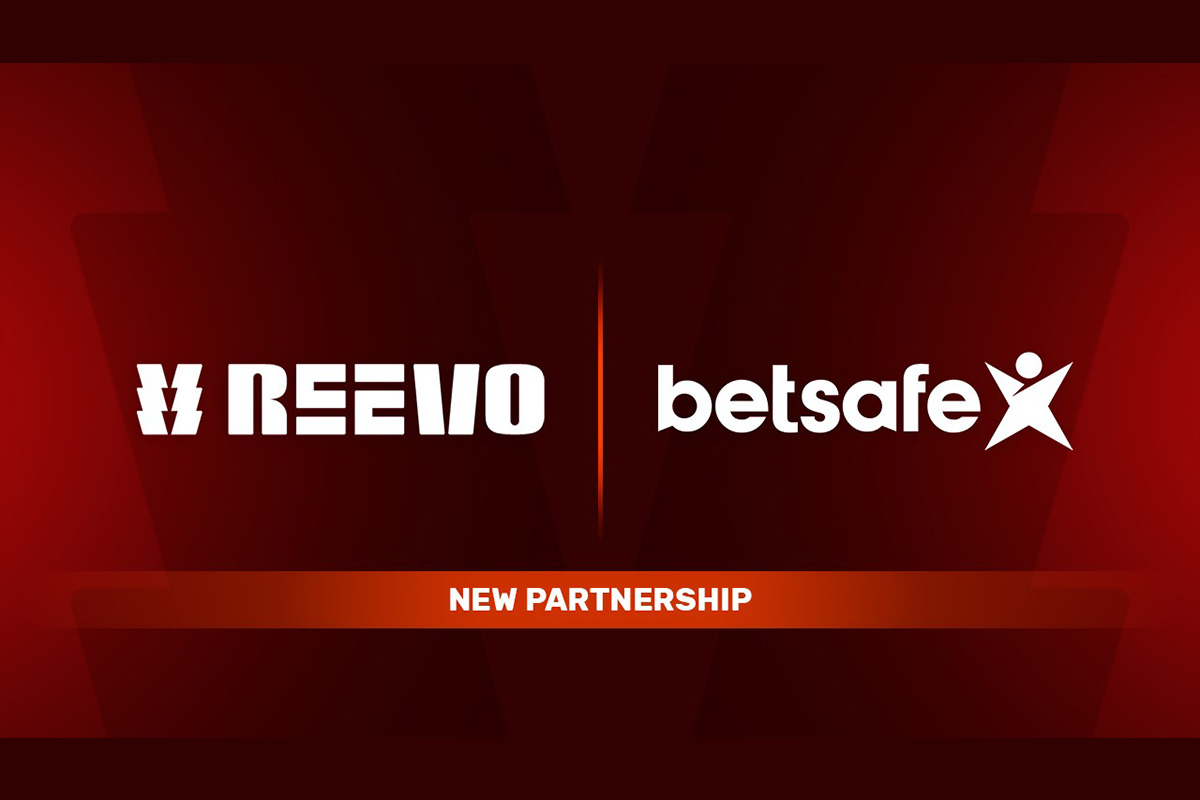
REEVO has announced a new partnership with Betsafe, strengthening REEVO’s growing presence across regulated European markets and reinforcing its expansion strategy in the Baltics region.
Through this collaboration, REEVO’s aggregation platform will support Betsafe’s casino offering in Estonia and Latvia, enabling access to a wide range of premium third-party content through a streamlined integration. The partnership reflects REEVO’s continued commitment to providing operators with scalable technology and an efficient route to expanding their game portfolio.
Betsafe is part of the Betsson Group, a global online gambling company operating more than 20 gaming brands across multiple markets. In the Baltics, Betsson Group operates under the Betsafe brand in Estonia and Latvia, offering a trusted and dynamic entertainment experience.
This partnership marks another important step forward for REEVO as it continues to grow as an aggregator and strengthen its reputation as a trusted partner for leading operators in key regulated territories.
Karl Grech, Head of Business Development at REEVO, said: “Estonia and Latvia are exciting markets with strong growth potential, and partnering with Betsafe is a fantastic milestone for REEVO. Betsafe is a well-established and trusted brand in the Baltics, and we’re proud to support their expansion through REEVO’s aggregation platform. This collaboration is another clear step forward in our growth strategy and reinforces our commitment to delivering efficient, high-performance solutions that help operators enhance their casino offering.”
Aurimas Šilys, Managing Director Baltics at Betsson Group, said: “Our collaboration with REEVO opens so many doors for Betsson Group brands in Baltics to onboard and launch more game providers and have the biggest and widest casino selection in Baltics markets.”
The post REEVO Announces Partnership with Betsafe appeared first on Eastern European Gaming | Global iGaming & Tech Intelligence Hub.
Acquisitions/Merger
Boonuspart Acquires Kasiino-boonus to Strengthen its Position in the Estonian iGaming Market
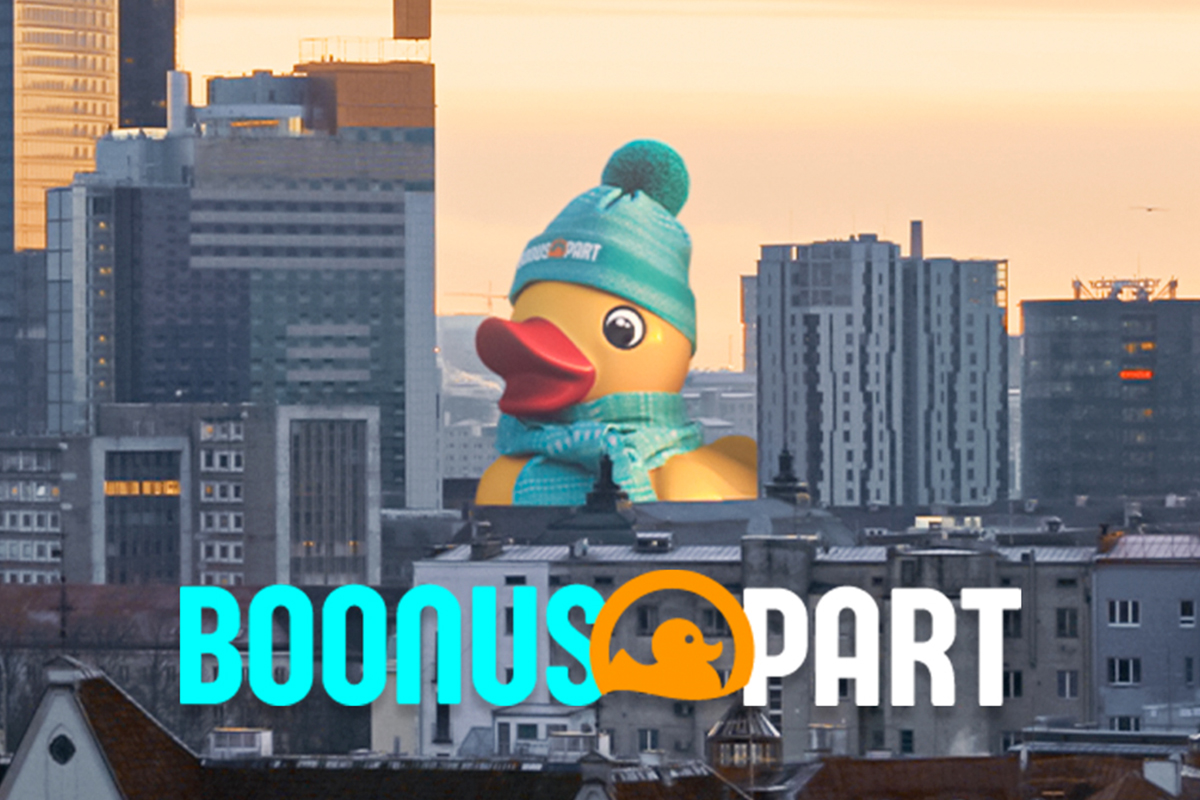
Boonuspart.ee, a leading Estonian portal focused on casino bonuses and online casino comparisons, has acquired Kasiino-boonus.ee, further consolidating its position in the Estonian iGaming affiliate market.
The acquisition brings together two well-established Estonian-language casino resources to enhance content depth, accuracy of comparisons and overall user experience for players seeking up-to-date casino bonuses and reliable information.
Kasiino-boonus.ee has built strong visibility around casino bonus-related search terms in Estonia, while Boonuspart.ee has focused on broader comparisons, editorial content and long-form guides. By combining these strengths, Boonuspart.ee aims to create a more comprehensive and authoritative platform for Estonian players.
“This acquisition supports our long-term strategy of building the most trusted and informative casino bonus resource in Estonia. Kasiino-boonus.ee has a strong legacy in the local market, and we see clear synergies in terms of content, SEO, and player value,” Teemu Pesonen, co-founder of Boonuspart, said.
Following the acquisition, Kasiino-boonus.ee will be gradually integrated into the Boonuspart.ee ecosystem. Existing content will be reviewed, updated and expanded where relevant, with a continued focus on transparency, up-to-date bonus terms and compliance with Estonian regulations.
No changes will be made to player data handling, and no user information is transferred as part of the transaction.
The acquisition reflects a broader trend of consolidation within the European iGaming affiliate sector, as established publishers invest in trusted local brands to strengthen editorial quality and long-term sustainability.
The post Boonuspart Acquires Kasiino-boonus to Strengthen its Position in the Estonian iGaming Market appeared first on Eastern European Gaming | Global iGaming & Tech Intelligence Hub.
Aurimas Šilys
REEVO Partners with Betsson Lithuania
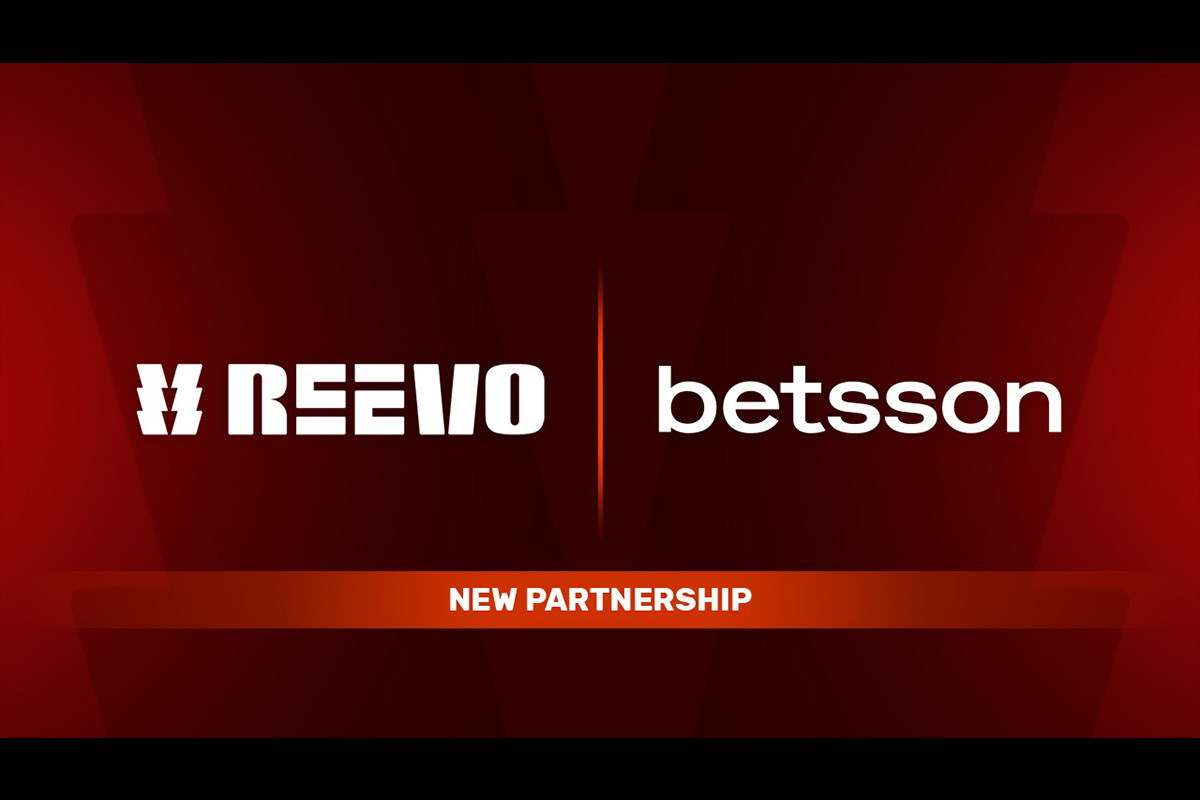
REEVO has announced a new partnership with Betsson Lithuania, strengthening REEVO’s growing footprint across Europe’s regulated markets and marking an exciting step in the company’s expansion into the Baltics.
Through this collaboration, REEVO will provide its aggregation solution to Betsson Lithuania, enabling the operator to expand its casino offering with access to a wide selection of high-quality third-party content through a single integration. This partnership reinforces REEVO’s mission to simplify content delivery and empower leading operators with an efficient and scalable aggregation ecosystem.
Betsson AB is a global online gambling company operating more than 20 online gaming brands and offering casino, poker, bingo, sportsbook and scratch card products. In Lithuania, Betsson operates under its flagship Betsson brand, delivering a trusted digital entertainment experience to the local market.
For REEVO, this partnership represents another important milestone as the company continues to secure strategic collaborations with top-tier operators across key European territories.
Karl Grech, Head of Business Development at REEVO, said: “Lithuania is an exciting market with huge growth potential, and partnering with Betsson is a strong move forward for REEVO. Betsson is a respected name in the industry with a strong presence in the Baltics, and we’re proud to support their platform through our aggregation solution. This collaboration reflects our continued focus on expanding in regulated markets and delivering a content ecosystem that helps operators strengthen their offering and drive long-term engagement.”
Aurimas Šilys, Managing Director Baltics at Betsson Group, added: “Our collaboration with REEVO opens so many doors for Betsson Group brands in Baltics to onboard and launch more game providers and have the biggest and widest casino selection in Baltics markets.”
By launching with Betsson in Lithuania, REEVO continues to build momentum in the region and further expand its international distribution network, offering operators the flexibility and efficiency required to scale quickly in competitive regulated markets.
The post REEVO Partners with Betsson Lithuania appeared first on Eastern European Gaming | Global iGaming & Tech Intelligence Hub.
-

 Amusnet6 days ago
Amusnet6 days agoWeek 7/2026 slot games releases
-

 Aphrodite’s Kiss6 days ago
Aphrodite’s Kiss6 days agoLove on the Reels: Slotland Introduces “Aphrodite’s Kiss”
-

 Baltics7 days ago
Baltics7 days agoEstonia to Reinstate 5.5% Online Gambling Tax From March 1
-

 Brino Games6 days ago
Brino Games6 days agoQTech Games integrates more creative content from Brino Games
-

 Denmark7 days ago
Denmark7 days agoRoyalCasino Partners with ScatterKings for Company’s Danish Launch
-

 Booming Games7 days ago
Booming Games7 days agoTreasure Hunt Revival — Booming Games Launches Gold Gold Gold Hold and Win
-

 ELA Games7 days ago
ELA Games7 days agoELA Games Unveils Tea Party of Fortune — A Magical Multiplier Experience
-

 Bet Rite7 days ago
Bet Rite7 days agoSpintec Expands into Canada with Bet Rite



